Related Research Articles
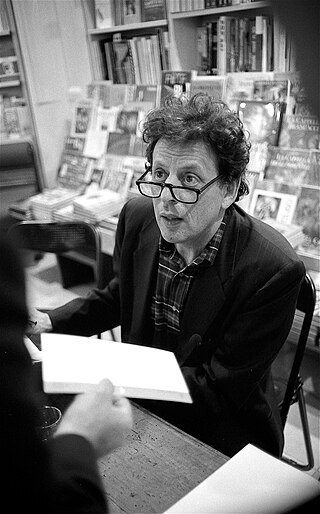
Philip Glass is an American composer and pianist. He is widely regarded as one of the most influential composers of the late 20th century. Glass's work has been associated with minimalism, being built up from repetitive phrases and shifting layers. Glass describes himself as a composer of "music with repetitive structures", which he has helped to evolve stylistically.
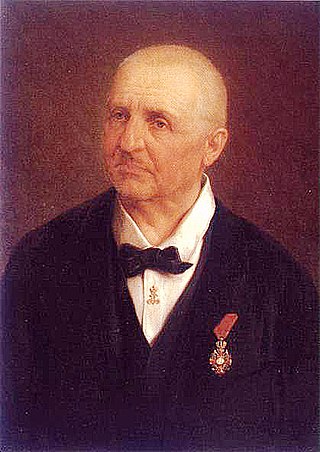
Josef Anton Bruckner was an Austrian composer and organist best known for his symphonies and sacred music, which includes Masses, Te Deum and motets. The symphonies are considered emblematic of the final stage of Austro-German Romanticism because of their rich harmonic language, strongly polyphonic character, and considerable length. Bruckner's compositions helped to define contemporary musical radicalism, owing to their dissonances, unprepared modulations, and roving harmonies.

Anton Bruckner's Symphony No. 5 in B-flat major WAB 105, was written in 1875–1876, with minor changes over the next two years. It came at a time of trouble and disillusion for the composer: a lawsuit, from which he was exonerated, and a reduction in salary. Dedicated to Karl von Stremayr, education minister in the Austro-Hungarian Empire, the symphony has at times been nicknamed the "Tragic", the "Church of Faith" or the "Pizzicato"; Bruckner himself referred to it as the "Fantastic" without applying this or any other name formally.
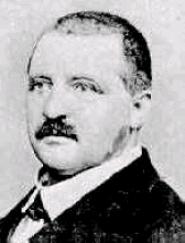
Anton Bruckner's Symphony No. 1 in C minor, WAB 101, was the first symphony the composer thought worthy of performing and bequeathing to the Austrian National Library. Chronologically it comes after the Study Symphony in F minor and before the "nullified" Symphony in D minor. The composer gave it the nickname Das kecke Beserl, and conducted its 1868 premiere. Much later, after Bruckner was granted an honorary University of Vienna doctorate in 1891, he dedicated the 1890–1891 version of the work to that institution.
The Bruckner Orchester Linz is an Austrian orchestra based in Linz. Named for Anton Bruckner, the orchestra is the concert orchestra for the state of Upper Austria, and also the opera orchestra at the Landestheater Linz. Consisting of 110 musicians, the orchestra participates in the Bruckner Festival, the Ars Electronica Festival and the Linzer Klangwolke.

Dennis Russell Davies is an American conductor and pianist. He is currently chief conductor of the Brno Philharmonic and of the MDR Leipzig Radio Symphony Orchestra.
The Lucerne Festival Orchestra is a European ad hoc seasonal orchestra based at the annual Lucerne Festival in Switzerland.
The New Century Chamber Orchestra was founded in 1992 by cellist Miriam Perkoff and violist Wieslaw Pogorzelski. The goal of the founders was to present classical music in a fresh and unique way in the San Francisco Bay Area. The music director chooses the programs and guides the artistic vision and leads the seventeen members of the orchestra as part of a conductorless orchestra. Musical decisions are made collaboratively, in the goal of enhancing the level of commitment on the part of the musicians and increasing the precision, passion and power of their playing.

The Vienna Singverein is the concert choir of the Vienna Musikverein with around 230 members. It is regularly requested by top orchestras and conductors for large and varied projects.
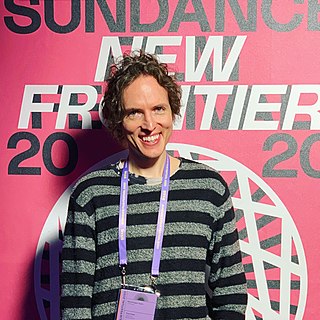
Tim Fain is an American violinist and composer, best known for his performances in the feature film soundtracks to Black Swan, 12 Years a Slave, and Moonlight, and his work with American composer Philip Glass.
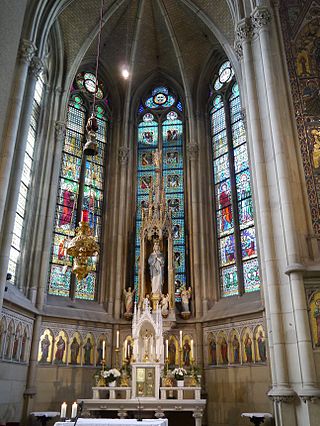
The Mass No. 2 in E minor, WAB 27 is a setting of the mass ordinary for eight-part mixed choir and fifteen wind instruments, that Anton Bruckner composed in 1866.
Symphony No. 6, also known as the Plutonian Ode Symphony, is a symphony composed by Philip Glass. It is based on the poem Plutonian Ode by Allen Ginsberg, parts of which are sung by the soprano soloist in the work. The symphony was commissioned by Carnegie Hall in honor of Glass' 65th birthday and as a vehicle for the talents of soprano Lauren Flanigan. The symphony premiered on February 2, 2002, at Carnegie Hall with Dennis Russell Davies conducting the American Composers Orchestra. The symphony is in three movements, based on the three parts of the poem itself.
Symphony No. 8 is a 2005 symphony by Philip Glass commissioned by the Bruckner Orchestra Linz. It was premiered on November 2, 2005 at Brooklyn Academy of Music by Bruckner Orchester Linz conducted by Dennis Russell Davies. The symphony is in three movements and features extended solo writing. Critic Allan Kozinn described the symphony's chromaticism as more extreme, more fluid, and its themes and textures as continually changing, morphing without repetition, and praised the symphony's "unpredictable orchestration", pointing out the "beautiful flute and harp variation in the melancholy second movement". Alex Ross remarked that "against all odds, this work succeeds in adding something certifiably new to the overstuffed annals of the classical symphony. (...) The musical material is cut from familiar fabric, but it’s striking that the composer forgoes the expected bustling conclusion and instead delves into a mood of deepening twilight and unending night."

Ward Stare is an American conductor. Stare was the Music Director of the Rochester Philharmonic Orchestra from 2014 until 2021 and was also the Resident Conductor of the Saint Louis Symphony Orchestra from 2008 to 2012. Stare is currently active as a guest conductor both domestically within the United States as well as internationally. In addition Stare currently holds a position as a Distinguished Artist at the Robert McDuffie Center for Strings at Mercer University in Macon, Georgia.

The Fest-Kantate Preiset den Herrn, WAB 16, is a festive cantata composed by Anton Bruckner in 1862 for the celebration of the laying of the foundation stone of the new Mariä-Empfängnis-Dom of Linz.
Symphony No. 9 is Philip Glass's ninth symphony. It was written between 2010 and 2011. It is written in 3 movements. The work was jointly commissioned by the Bruckner Orchester Linz, Carnegie Hall, and the Los Angeles Philharmonic Association.

Peter Ernest Tiboris is an American producer particularly noted for conducting and producing concerts at Carnegie Hall, Lincoln Center, and other classical music venues around the world, especially in Greece. He has conducted over 50 concerts in Stern Auditorium / Perelman Stage at Carnegie Hall and at Lincoln Center and produced nearly 1300 concerts worldwide through the company he founded in 1983, MidAmerica Productions. Mr. Tiboris' concerts have been hailed by The New York Times as "sizzling and precise," and "vigorous...alert and energetic."
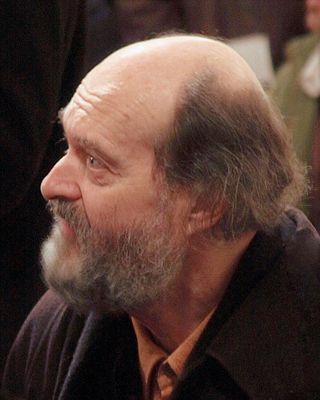
Lamentate for piano and orchestra is the largest instrumental work by Estonian composer Arvo Pärt. The work was commissioned by Tate and Egg Live, written in 2002, and premiered on 7 and 8 February 2003 in the Turbine Hall of Tate Modern Museum in London where the massive "Marsyas" was installed. The pianist for the premiere was Hélène Grimaud, with Alexander Briger conducting the London Sinfonietta. The piece is written in the tintinnabuli style, the technique Pärt created in 1976.
The Austrian composer Anton Bruckner composed eleven symphonies, the first, the Symphony in F minor in 1863, the last, the unfinished Ninth symphony from 1893 to 1896.
The International Brucknerfest Linz is an annual series of music events held in Linz.
References
- ↑ Symphony No. 11, philipglass.com
- ↑ Robin, William (27 January 2017). "Philip Glass Celebrates His 80th Birthday With an 11th Symphony". The New York Times . Retrieved 2 March 2017.
- ↑ Bruckner Orchestra Linz – Celebrating Philip Glass's 80th Birthday, Carnegie Hall, January 31, 2017